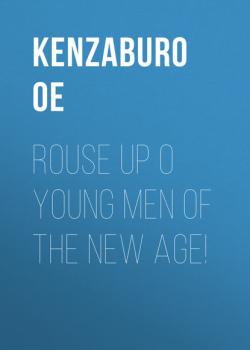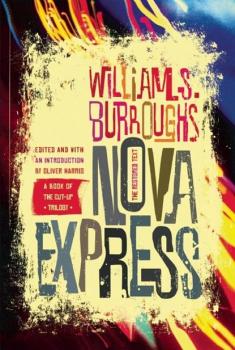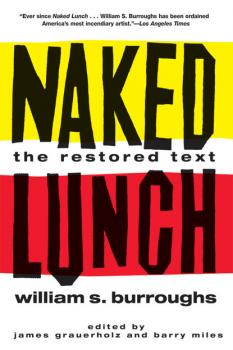Современная зарубежная литература
Различные книги в жанре Современная зарубежная литератураGettysburg
Reminiscent of the work of Tom Perrotta, Bruce Wagner, and Michael Tolkin, Morris's Gettysburg , which centers on a Los Angeles entertainment lawyer who signs up for a Civil War re-enactment in California's Chino Valley, is at once a biting satire of Hollywood and an astute exploration of America’s present and its history. An entertainment lawyer himself, Morris brings the main character, John Reynolds, and his Hollywood surroundings to vivid, hilarious life. Morris's 2016 novel All Joe Knight was Longlisted for the Center for Fiction First Novel Prize and was an Amazon Best Book of the Month in Literature & Fiction in December 2016. Both All Joe Knight and Morris's 2015 story collection White Man's Problems were published to rave reviews in major publications including The New York Times , Vanity Fair , Esquire , and Time . We expect similar coverage for Gettysburg . Morris's writing has been compared to that of John Updike, Raymond Carver, and John Cheever. Morris is an entertainment lawyer, writer, and producer with impressive credits and extensive connections in the entertainment industry. He produced the acclaimed documentary Hands on a Hardbody and was a coproducer and Tony Award winner for the hit Broadway musical The Book of Mormon .
My Idea of Fun
Will Self has established himself as one of the most brilliant, daring, and inventive writers of his generation. My Idea of Fun is Will Self’s highly acclaimed first novel. The story of a devilishly clever international financier/marketing wizard and his young apprentice, My Idea of Fun is both a frighteningly dark subterranean exploration of capitalism run rampant and a wickedly sharp, technically acute display of linguistic pyrotechnics that glows with pure white-hot brilliance. Ian Wharton is a very ordinary young man until he is taken under the wing of a gentleman known variously as Mr. Broadhurst, Samuel Northcliff, and finally and simply the Fat Controller. Loudmouthed, impeccably tailored, and a fount of bombastic erudition, the Fat Controller initiates Ian into the dark secrets of his arts – of marketing, money, and the human psyche – and takes Ian, and the reader, on a wild voyage around the edges of reality. As we careen into the twenty-first century, Self perfectly captures the zeitgeist of our times: money is the only common language; consumerism, violence, and psychosis (drug-induced and otherwise) prevail; and the human soul has become the ultimate product.
Umbrella
"A brother is as easily forgotten as an umbrella."—James Joyce, UlyssesRadical and uncompromising, Umbrella is a tour de force from one of England’s most acclaimed contemporary writers, and Self’s most ambitious novel to date. Moving between Edwardian London and a suburban mental hospital in 1971, Umbrella exposes the twentieth century’s technological searchlight as refracted through the dark glass of a long term mental institution. While making his first tours of the hospital at which he has just begun working, maverick psychiatrist Zachary Busner notices that many of the patients exhibit a strange physical tic: rapid, precise movements that they repeat over and over. One of these patients is Audrey Dearth, an elderly woman born in the slums of West London in 1890. Audrey’s memories of a bygone Edwardian London, her lovers, involvement with early feminist and socialist movements, and, in particular, her time working in an umbrella shop, alternate with Busner’s attempts to treat her condition and bring light to her clouded world. Busner’s investigations into Audrey’s illness lead to discoveries about her family that are shocking and tragic.
Rouse Up O Young Men of the New Age!
Wise and illuminating, Rouse Up O Young Men of the New Age! is a masterpiece from one of the world's finest writers, Kenzaburo Oe – winner of the Nobel Prize for Literature. K is a famous writer living in Tokyo with his wife and three children, one of whom is mentally disabled. K's wife confronts him with the information that this child, Eeyore, has been doing disturbing things – behaving aggressively, asserting that he's dead, even brandishing a knife at his mother – and K, given to retreating from reality into abstraction, looks for answers in his lifelong love of William Blake's poetry. As K struggles to understand his family and assess his responsibilities within it, he must also reevaluate himself – his relationship with his own father, the political stances he has taken, the duty of artists and writers in society. A remarkable portrait of the inexpressible bond between this father and his damaged son, Rouse Up O Young Men of the New Age! is the work of an unparalleled writer at his sparkling best.
Dorian
Will Self's DORIAN is a «shameless imitation» of Oscar Wilde's The Picture of Dorian Gray that reimagines the novel in the milieu of London's early-80s art scene, which for liberated homosexuals were a golden era of sex, drugs and decadence before the AIDS epidemic struck later in the decade. It is «an age in which appearances matter more and more and more. Only the shallowest of people won't judge by them.» Young Dorian Gray, just out of school, is a trust funded, impressionable Adonis-like blonde with none of the cynicism of the characters who end up corrupting his innocence even as they love him for it. He arrives in London to help socialite and philanthropist Phyllis Hawtree with her project of running a shelter for young drug addicts. He knows he is strikingly beautiful, that he could be a male model, but he tries not to get too caught up in the «looks thing.» Basil Hallward, an artist friend of Phyllis's son Henry Wotton, meets Dorian and immediately falls for him, asking him to pose for a video installation called Cathode Narcissus, wherein Dorian is surrounded by nine television monitors which project images of himself looking into a mirror. In the book's final pages, we discover that Dorian is so taken by the images that he makes a wish that they will age while he remains eternally young. And indeed, Dorian soon swears he sees some faint traces of aging in the images.Meanwhile Dorian is so impressed with the witty, sophisticated banter between Baz and Wotton that he immediately wants to be part of their world (he is described as a social chameleon, easily slipping into the characteristics and fashions and mannerisms of those around him). Dorian, then, breaks up with his college girlfriend and takes up with Baz's friend Wotton, a rich, intelligent but affectless homosexual boozer and cokehead (and careless Jaguar driver) who has a loveless marriage of convenience with the socialite Lady Victoria, a somewhat batty woman who is fine to live in denial of her husband's sexuality so long as their marriage keeps bringing in a flood of party invitations. Jealous of Baz's affections for Dorian and eager to see Dorian «thoroughly pleasure this jaded century» via his unparalleled looks and money, he takes Dorian under his wing and Dorian soon grows to prefer the wild, devil-may-care Wotton over the earnest, somewhat pretentious Baz. («Baz Hallward the wayward acolyte, seething with energy and bumptiousness; while the younger man [Wotton] played the part of his mentor, consumed with cool, eaten up with indifference.»)"Dorian knew his own limitation: he had money but no real style. His upbringing had been here and there, on the fringes of film sets, in foreign hotels… It had given him polish but no shine. He lacked the deep lustre of someone like Wotton." But in truth, Wotton is no better himself: «Henry Wotton was subject to saying to anyone who would listen that the chameleon is the most significant of modern types.» And while outer appearance would seem to belie this, the truth was that beneath the Planet of Wotton was a realm of complete flux." The characters to which Wotton introduces Dorian are no better: drug addicts who revere Dorian only for his looks and money. As Dorian gets caught up in this world he becomes every bit as superficial as these people: «Dorian had begun to display talents in the only two areas of life that are worth considering, he was becoming a seducer par excellence, and he was transforming himself into an artificer of distinction, a person who is capable of employing all of the objective world to gain his own end.» He eventually falls for a junkie named Herman largely for his beautiful black skin. To celebrate the debut of Cathode Narcissus, Dorian invites Herman over for an orgy with Wotton, Baz, and the others although not as jaded as Dorian has become (and apparently not a homosexual), Herman's craving for drugs is such that he agrees, and at the party he shares a needle with the other attendees and unwittingly infects them with AIDS. After the party, perhaps because he is ashamed of what he has sunk to, he kills himself in the street.PART TWO: TRANSMISSIONTen years have passed, and Henry Wotton now lies in a hospital bed on the AIDS ward. He knows he is dying, as is his friend Baz who visits him now for the first time in years, but unlike Baz, Wotton has continued to live the life that brought him down, bribing the hospital employees to let his dealer visit him. His wife is in absolute denial, calling Wotton’s infection a “bug.â€? Baz becomes angry that Wotton is not taking care of himself (having been clean for five years, Baz has recovered his soul). He tells Wotton about his move to New York City in the early eighties, when Manhattan was “at the very peak of a great mountain of depravity.â€? His drug habit drove him to poverty and homelessness and he eventually ended up an errand boy for three transvestite cabaret acts who housed him in their squaliiiiiid apartment. Dorian found him here and “savedâ€? him by cleaning him up and taking him shopping so that Baz might introduce him to some of his downtown connections (Warhol, Mapplethorpe, Burroughs, etc.) This doesn’t really happen, but Dorian does manage to “put himself at the center of every season,â€? ever-popular for his looks, fake refinement, and money. “His social promiscuity and his sexual promiscuity have had the same bewildering effect—that of making him incomprehensible, unknowable. Is he gay or straight? Is he nob or yob? And incidentally, how old is he exactly?â€? Dorian discovers gay nightlife, sleeping with hundreds (maybe thousands) of men and in one brutal instance he later recalls with glee, beating a man to death as he sodomizes him in the basement of the Mineshaft nightclub. Eventually, however, when the AIDS scare begins, Dorian popularity lessens when many suspect that he is knowingly transmitting the disease.When Wotton returns from the AIDS ward, a dinner party is thrown and Dorian shows up unexpectedly. Wotton and Baz are shocked to see that he looks exactly as he did ten years ago—he hasn’t aged a bit and apparently doesn’t have AIDS. During the party Baz tells Dorian that he would like to photograph Cathode Narcissus for an upcoming retrospective and Dorian invites Baz back to his mews home to see it. There, Dorian offers Baz oral sex and his first hit in five years. He tells Baz of the wish he made when he first saw Cathode Narcissus and reveals that ever since then, the images have indeed been aging while he stays young. When Baz refuses to believe it Dorian reveals the monitors and sure enough they play horrifying images of an AIDS-stricken Dorian—“concentration camp victims forced to dance by some insane Nazi doctor. When Baz refuses to copy the tapes for Dorian so that he can continue to preserve his youth, Dorian brutally stabs Baz several times, killing him without compunction. “Baz joined the wraithlike Dorians, who had stepped down from their monitors to meet him and in the null space in the middle of the null room, the ten of them linked hands, formed a ring, and commenced a stately dance.â€?EPILOGUEAs it turns out, everything up until this point is the text of a novel written by Henry Wotton, who is now dead of AIDS and has left the book for Dorian and Victoria. Dorian is hurt and indignant about the way he is portrayed: he insists that he never killed anyone, he is not a shallow narcissus but rather someone who genuinely cares about the good of others, he is not a free-loading model but has worked hard as the publisher of a fashion/design magazine. He brushes the book off but as he tries to go on with his work of preserving the now-famous work of Baz, the cynical narrative voice of Henry Wotton’s book keeps intruding into his thoughts until finally, as Dorian visits the scene of his friend Princess Di’s fatal crash, Wotton reappears and cuts his throat.
Promiscuous Unbound
Vivienne Yellow, the unforgettable narrator of this arresting and witty debut, is an American woman who lies in traction in a Parisian hospital, her leg shattered after she was accidentally hit by a truck. Through hazy wormholes of memory, colored by her own morphine-stoked sexual longings, we are drawn into her past: Exactly what happened to her as she tried to cross rue de Cherche Midi, her wildly adulterous marriage to an emotionally distant man, and her relationship with her father, the famously charismatic naturalist Maurice Yellow. Bound to her bed and trapped by her own thoughts, Vivienne's only link to the outside world is a fellow patient, Sonia, an acid-tongued French teenager with a failing heart. Over the course of her musings, Vivienne comes to understand one thing: sex is her refuge, a notion oddly reaffirmed by the stories Sonia begins to bring her about a new patient, an innocent refugee from the Kosovo crisis who had tried to save herself by marrying the first man she met. Ribald and funny, with a rich Dorothy Parker bitterness, Promiscuous Unbound traces the relationship between memory and love and loss and reveals each woman's unorthodox search for salvation.
Kornwolf
Tristan Egolf's new novel is a book about the return of an old curse — the Kornwolf, a ferocious werewolf whose nocturnal rampaging becomes increasingly impossible to ignore. Kornwolf takes the reader for a good old-fashioned romp in the stubble — a journey through the slums and honky tundra of rural Pennsylvania, where nothing quite passes for good or bad, sublime or dismal, discrete or brash. And then the monotony breaks. Something — a freak of creation — is running amok in the fields. To solve the mystery, three generations of prodigal sons — a writer and hometown boy who swore he'd never come back to Penn's Woods; a middle-aged former pugilist who runs a decrepit boxing gym; and a misfit, mute, beaten-down Amish boy — are brought together by the light of a blue moon, in a town called Blue Ball. On one level this is a masterfully orchestrated, hilarious, and compelling take on the classic horror yarn, on another, Kornwolf is a social satire of suburban sprawl, closed minds, and all manners and varieties of self-satisfaction — Amish, civilian, or… other — in the best tradition of Tom Robbins and George Saunders.
Nova Express
The Soft Machine introduced us to the conditions of a universe where endemic lusts of the mind and body pray upon men, hook them, and turn them into beasts. Nova Express takes William S. Burroughs’s nightmarish futuristic tale one step further. The diabolical Nova Criminals—Sammy The Butcher, Green Tony, Iron Claws, The Brown Artist, Jacky Blue Note, Izzy The Push, to name only a few—have gained control and plan on wreaking untold destruction. It’s up to Inspector Lee of the Nova Police to attack and dismantle the word and imagery machine of these “control addicts” before it’s too late. This surrealist novel is part sci-fi, part Swiftian parody, and always pure Burroughs.
Naked Lunch
Since its original publication in Paris in 1959, Naked Lunch has become one of the most important novels of the twentieth century. Exerting its influence on the relationship of art and obscenity, it is one of the books that redefined not just literature but American culture. For the Burroughs enthusiast and the neophyte, this volume—that contains final-draft typescripts, numerous unpublished contemporaneous writings by Burroughs, his own later introductions to the book, and his essay on psychoactive drugs—is a valuable and fresh experience of a novel that has lost none of its relevance or satirical bite.
Cold Mountain
In 1997, Charles Frazier’s debut novel Cold Mountain made publishing history when it sailed to the top of The New York Times best-seller list for sixty-one weeks, won numerous literary awards, including the National Book Award, and went on to sell over three million copies. Now, the beloved American epic returns, reissued by Grove Press to coincide with the publication of Frazier’s eagerly-anticipated second novel, Thirteen Moons. Sorely wounded and fatally disillusioned in the fighting at Petersburg, a Confederate soldier named Inman decides to walk back to his home in the Blue Ridge mountains to Ada, the woman he loves. His trek across the disintegrating South brings him into intimate and sometimes lethal converse with slaves and marauders, bounty hunters and witches, both helpful and malign. At the same time, the intrepid Ada is trying to revive her father’s derelict farm and learning to survive in a world where the old certainties have been swept away. As it interweaves their stories, Cold Mountain asserts itself as an authentic odyssey, hugely powerful, majestically lovely, and keenly moving.









